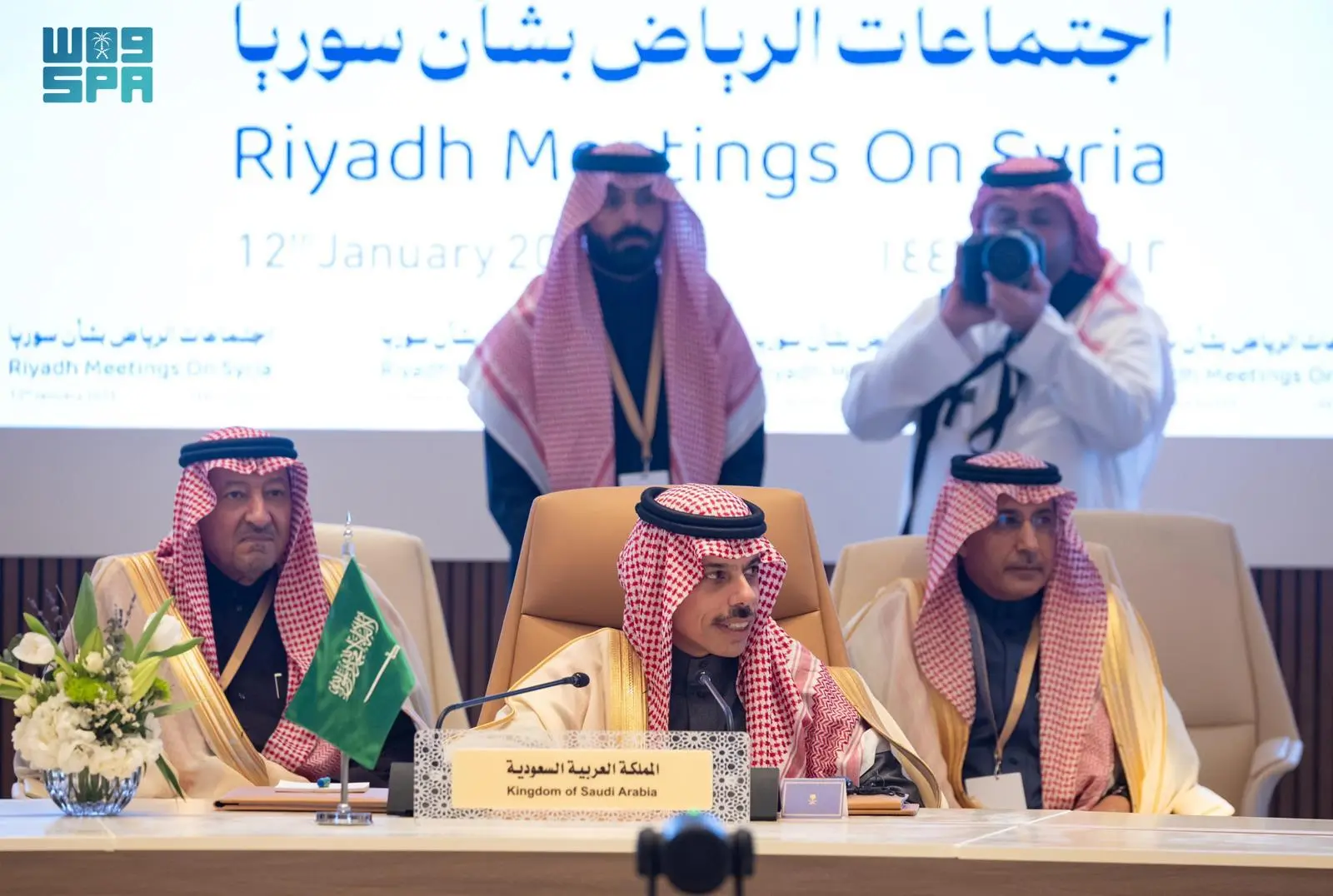The Riyadh meeting on Syria was attended by representatives of a number of countries from the Middle East and beyond, including Syria, Jordan, Lebanon, and Turkiye, as well as the UK and US. Officials from the GCC, EU and UN also took part.
Minister of Foreign Affairs Prince Faisal bin Farhan bin Abdullah chaired the Expanded Arab Ministerial Meeting on Syria in Riyadh this Sunday. This meeting built upon ministerial discussions held in Aqaba, Jordan, on December 14, 2024.
The meeting was attended by attended by Syria’s foreign minister, Asaad al-Shibani, and brought together foreign ministers and representatives from Bahrain, Egypt, France, Germany, Iraq, Italy, Jordan, Kuwait, Lebanon, Oman, Qatar, Spain, Syria, Türkiye, the United Arab Emirates, the United Kingdom, the United States, as well as the Secretary-General of the Arab League, the High Representative of the European Union for Foreign Affairs and Security Policy, the Secretary-General of the Gulf Cooperation Council.
Neither Russia nor Iran, which supported former Syrian dictator Bashar al-Assad, were invited to the summit.
The Riyadh meeting reviewed the US decision to ease restrictions on humanitarian aid for six months, and European plans to take similar steps probably at the end of the month.
Discussions emphasized the importance of lifting sanctions on Syria and welcomed the U.S. decision to issue General License 24, which provides exemptions related to sanctions for six months.
Kaja Kallas, the EU foreign policy chief, said the foreign ministers would convene in Brussels on Jan. 27 to decide how the 27-nation bloc would relax sanctions on Syria.
Saudi Foreign Minister Prince Faisal bin Farhan Al Saud urged the international community to lift unilateral and international sanctions on Syria and to expedite humanitarian, economic, and capacity-building support. Such measures, he noted, are essential to creating conditions for Syrian refugees to return and for the country to achieve development, reconstruction, and stability.
Writing for The Guardian, Patrick Wintour notes,
“Western diplomats still believe Syria’s new leader and the head of Hayat Tahrir al-Sham, Ahmed al-Sharaa, is sincere in promising to form a broader government by March. However, they fear that the unexpected success of his Islamist group’s military offensive in December has left Sharaa unprepared, and prone to mistakes. Some western diplomats are expecting that a proposed March power-transfer date will slip as he struggles to gather a consensus around how to provide democratic veneer to a new broader-based government and plans for a new constitution. In a positive development, it was revealed that Sharaa had held a near three-hour meeting last week with the one-time official political opposition known as the Syrian National Coalition.”
Riyadh’s decision to host Sunday’s talks “sends the message that Saudi Arabia wants to take the lead on coordinating the regional effort to support Syria’s recovery. But the big question is how much time and how many resources will Saudi Arabia devote to this effort? And what is possible with many of the sanctions remaining in place?” said Anna Jacobs, non-resident fellow at the Arab Gulf States Institute in Washington.









